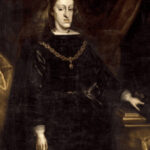“It is through our names that we first place ourselves in the world. Our names, being the gift of others, must be made our own. . . . They must become our masks and our shields and the containers of all those values and traditions which we learn and/or imagine as being the meaning of our familial past.” – Ralph Ellison
Family Names, or surnames, are more than just labels; they are powerful links to our heritage and identity. As Ralph Ellison eloquently stated, our names are the initial way we establish our place in the world. They are inherited, yet it is our journey to make them truly our own, imbuing them with personal meaning and understanding their connection to our familial past. This exploration of family names can be a profound journey into self-discovery and understanding our roots.
The documentary Family Name by Macky Alston provides a compelling illustration of this concept. Alston, a white filmmaker, delves into the shared history of three contemporary families bearing his surname – two Black and one white. In the film, Alston recounts his childhood experiences: discovering Black children with his last name and later learning about his family’s history as slave owners in North Carolina. This personal quest to understand the full story behind his family name highlights the complex layers of history and identity embedded within surnames.
My grandfather’s name was Wallace McPherson Alston and he was a preacher. My father’s name is Wallace McPherson Alston, Jr., and he’s also a preacher. My name is Wallace McPherson Alston the third. I dropped out of seminary after two years. Okay, so I rebelled. . . . When I was five [my father] put me in a predominately black public school in Durham, North Carolina. It was where I first met black children with the same last name as me. I remember wondering how this could be, but I felt like this was something I couldn’t talk about. We moved north when I was eight and the issue never really came up again.
Recently I asked my dad about our family history and he gave me a book. That’s where I discovered that the Alstons were one of the largest slave-owning families in North Carolina.
Is something a secret if everybody knows it, but nobody talks about it? I want to know the whole story behind my family name.
Beyond personal identity, family names also reflect our societal standing throughout history. Names have been markers of power and freedom, or the lack thereof. Taylor Branch, in Parting the Waters, emphasizes the significance of names for formerly enslaved people: “Among the most joyous feelings most frequently mentioned by freed or escaped slaves was the freedom to choose a name. A name was no longer incidental.” This underscores that the ability to choose and claim a name was a fundamental aspect of liberation and self-determination.
In conclusion, exploring our family names offers a valuable lens through which to understand our personal history and our place within the broader social narrative. They are not merely identifiers, but rather vessels carrying stories of identity, power, and the enduring legacy of our ancestors.
References
[1] Ralph Ellison, in The Collected Essays of Ralph Ellison, ed. John F. Callahan (Modern Library, 2003), 192.
[2] Family Name, directed by Macky Alston (Opelika Pictures, 1997).
[3] Taylor Branch, Parting the Waters: America in the King Years, 1954–63 (New York: Simon & Schuster, 1988), 45.

